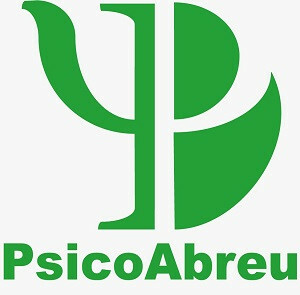How do you intervene in Impulse Control Disorders?
The impulses are defined by the need or urgency to carry out a certain behavior, using emotion and leaving reason aside.
When the person experiences this sensation, our self-control ability is activated to decide what to do and to what extent we let ourselves be carried away by this impulse.
However, there is a part of the population that finds it very difficult to manage impulses and they carry out the action, regardless of its possible consequences. In these cases, the well-known Impulse Control Disorder occurs.. Let's see how it is treated in therapy.
What is an Impulse Control Disorder?
Impulse Control Disorder is characterized by the inability or great difficulty resisting taking an action, even when the conduct is harmful to the person or their environment.
According to Ana Claudia Alda, a psychologist at the cabinet Psychologists Malaga PsicoAbreu, during the impulse, the person experiences a state of tension and arousal that is relieved by performing the behavior. Thus, after finishing it, you get a feeling of liberation and pleasure.
Sometimes, people with this disorder have feelings of guilt and remorse for the action committed.
It is a psychological problem that appears in adolescence and is maintained over time if there is no correct psychological intervention. In the same way, this disorder ends up affecting all areas of the individual, since its management emotional is affected in all areas of his life (work, academic, family, social or couple).
Classification of Impulse Control Disorders
The latest edition of the Diagnostic and Statistical Manual of Mental Disorders (DSM-V) establishes the category of "Disruptive disorders, impulse control and conduct" to collect those related disorders with regulation of behavior and emotion. Thus, the following disorders are differentiated:
1. oppositional defiant disorder
It consists of a pattern of irritability, anger, arguments, defiance or revenge in interpersonal relationships. This disorder appears in childhood and early adolescence.
Suffer this alteration may pose a risk of suffering emotional or behavioral disorders in the future. In these cases, there is evidence of a lack of management of the emotion of anger and control of behaviors such as arguments.
2. conduct disorder
The response pattern of the individual is a range of behaviors that violate the basic rights of others and age-appropriate social norms.
Self-control over these behaviors is practically nil, despite the consequences of carrying them out.
3. intermittent explosive disorder
It is characterized by a pattern of aggressive response that is out of proportion before the triggering situation.
These impulsive outbursts have a very rapid onset and last less than 30 minutes. In addition to the main outburst, it is common to find less intense verbal or physical aggression.
4. Pyromania
The person with this disorder has deliberately set or attempted to set fires on several occasions.
Patients with this disorder usually experience a feeling of tension just before starting the fire, and it disappears after starting it.
6. Kleptomania
It is characterized by the inability to resist the urge to steal items, even though they are not necessary. Like in the pyromania, a feeling of tension is experienced before the theft behavior, followed by a feeling of relief and pleasure.
Other problems related to this alteration
In addition to these disorders mentioned, there are other problems that have a lack of impulse control in common. Some of them are what we will see in these lines.
1. Compulsive shopping
This type of shopping is characterized because the person has the need to buy persistently, and is not able to resist her.
In addition, when buying you experience a feeling of short-term pleasure. However, a short time later, emotions such as disappointment and guilt appear, along with promises not to do it again.
2. Gambling or pathological gambling
The person suffering from compulsive gambling experiences the need to play in an uncontrollable way. this kind of game is maintained despite the negative consequences that it entails in different spheres (family, work, economic, social).
3. Onychophagia
It is characterized by the irrepressible impulse to bite the nails, so that this behavior ends up becoming a daily habit. It usually appears in situations of stress, anxiety and anguish.
4. trichotillomania
Is about an urge to pull out your hair, leading to a great loss of it. Although the person has tried to avoid doing it on multiple occasions, they are unable to resist the urge.
Psychological intervention in these patients

The psychologist Ana Claudia Alda confirms that The most appropriate treatment for this type of disorder is psychotherapy.. During the therapy at work in the Malaga PsicoAbreu Psychologists office, different aspects are addressed that will help the person control their impulses:
- Identify the tension signals prior to the impulse.
- Learn emotional regulation strategiesl Alternatives to carrying out the behavior.
- Work with thoughts that make it difficult to control impulses.
All this must be accompanied by the supervision of the psychotherapist, who in addition to giving instructions participates in the "training" of patients to overcome the Control Disorder impulses.


